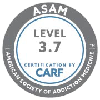Heroin Addiction
Heroin is a highly addictive opioid drug that, when injected or smoked, gives users a euphoric feeling. It’s also a powerful painkiller and can bring relaxation, as well. When the high wears off, users crash into what is often called “heroin withdrawal”—an uncomfortable and sometimes deadly ordeal. Addiction to heroin is life-stealing. People with this substance abuse problem lose themselves and have a constant drive to find their next fix, no matter the cost. This is why a heroin detox in Orange County is a vital part of heroin addiction treatment.
What Is Heroin Drug Detox?
Heroin detox is the process of removing heroin and other harmful substances from a person’s system in a safe and controlled environment. It is the first critical step in addressing heroin use disorder and creating a foundation for long-term recovery.
Heroin use affects the brain’s opioid receptors, leading to dependency and making it challenging to quit without experiencing painful withdrawal symptoms. These symptoms can include nausea, insomnia, muscle aches, anxiety, and intense heroin cravings. Without professional support, many individuals find it hard to overcome these physical and mental challenges.
At a specialized detox facility, experienced professionals offer medically supervised detox to ensure the process is effective and safe. Medications may be prescribed to reduce heroin withdrawal symptoms and stabilize the individual. This medical management not only eases discomfort but also reduces the risk of complications.
Heroin withdrawals can be rough. They range from vomiting and body aches to sleep disturbances and bone pain. That’s why these symptoms need to be monitored in a heroin addiction treatment center. In some cases heroin detox can precipitate seizures or heart failure.








